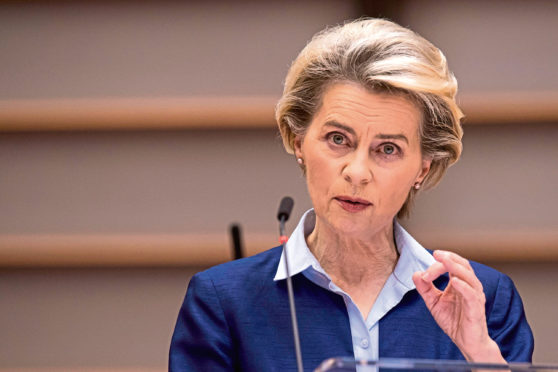Brexit is not the only, or even the main, show in town for the European Commission and the 27 member states it represents.
It has a greater focus on ambitious plans for a Green Deal that will dramatically cut EU greenhouse gases by 2030.
Farming is central to that via a new Farm to Fork strategy, which is supposed to be the core of the new Common Agricultural Policy (CAP).
However, the Commission president, Ursula von der Leyen, has criticised farm ministers and members of the European Parliament for backing down to pressure from the farming lobby to dilute some of the greenest parts of the new plan.
At issue in the CAP is whether the new eco-programmes will be compulsory and linked to direct payments.
Despite pressure, it may well take another CAP reform in the mid 2020s to see the green changes become policy.
As this debate continues, the existing CAP will remain in place for 2021-22.
The European Commission has published its annual Outlook report looking at trends in agriculture for the next 10 years.
More in hope than expectation, it predicts a greener future and a shift in emphasis towards protein production.
It says that by the end of the decade, this will be reflected in a drop in meat consumption and a 30% increase in proteins from plant-based sources.
The EU is heading towards a universal animal welfare label, but it is likely to be a long road.
This would have strict standards, above those in existing legislation.
The German EU presidency that drove the welfare logo idea says the aim is to reward farmers who go beyond existing rules to deliver something better.
The long-term aim would be to apply it to all livestock for their lifetime.
The big battle will be between the logo being voluntary or compulsory – with animal welfare organisations wanting the latter, which would deny farmers a premium price.
Another issue is how to treat imports, including those from the UK.
London would have to persuade the Commission to view the Red Tractor or other schemes as parallel standards.
